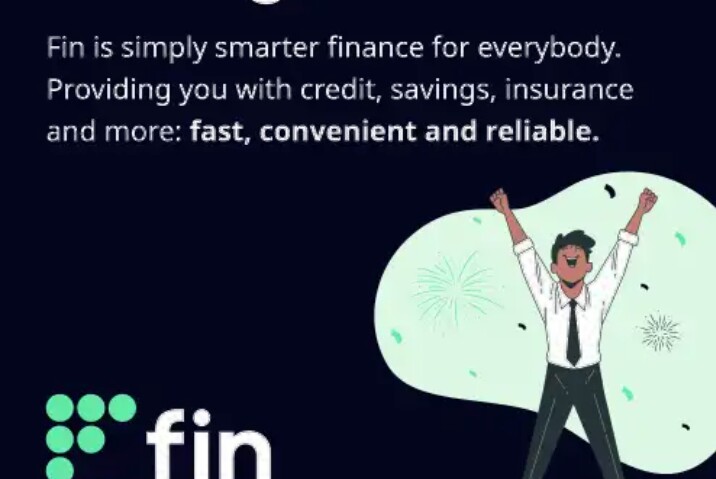African credit-led neobank Finclusion Group said in a statement that it had raised an extra $2 million in equity funding as it officially rebrands to Fin.
The news comes after a January announcement that the fintech had raised $20 million in pre-Series A debt and equity financing. The fintech uses AI algorithms to offer a variety of credit-focused products to customers in Africa. Additionally, in September 2021, Fin raised $20 million in debt from developing market finance provider Lendable, increasing its total capital secured in equity and debt to $42 million.
According to the statement, the new equity financing, which is being led by current investors Leonard Stiegeler, Sudeep Ramnani, and Jai Mahtani, who will also join the company’s board, will be used to expand the company’s business into new, fully integrated markets and to create new offerings, particularly in the form of third-party support for microfinance banks looking to expand their menu of financial services.
The need for financing among African consumers is severe. But in the long run, it can be hard for a company that only offers loans to compete with other lenders who also offer deposits and investments. These are financial services that any lender can cross-sell successfully to clients based on their credit history.
Read also: Kenya Fintech Cellulant Expands Operations To South Africa
Finclusion Products and Services
Fin, like other credit-first neobanks, has made credit products for consumers to help close the credit gap in the countries where it does business, such as Tanzania, Namibia, South Africa, Eswatini, and Kenya. Its offerings are also varied. There’s SmartAdvance, where Fin offers financial security solutions to employees through employer relationships.
Employees can borrow funds against their paychecks, have it subtracted from their paychecks, and lend through employer connections with the payroll loans and future wage loans provided by its wage streaming offering. In addition to savings products, cards, and buy now, pay later options available through a merchant network, an insurance product is in the works.
As a result of this rebranding, the company’s main markets now go by the names Fin Kenya (formerly TrustGro), Fin Tanzania (formerly Fikia Finance), and Fin South Africa. The company’s products are now called SmartAdvance by Fin, NiftyCredit by Fin, NiftyCover by Fin, MediFin, and e-Fin.
According to Fin’s strategy, the consolidation of its footprint across Africa under this name will highlight its desire to dominate the neobank market in Eastern and Southern Africa, where companies like TymeBank, Kwara, Koa, and Fingo have just emerged.
“Our cross-selling experience was limited when we first launched,” co-founder and co-CEO Timothy Nuy told TechCrunch over a call. “Through this integration, everything effectively becomes fin.” Someone will log into his Fin South Africa platform and gain access to all of the financial services we provide in that country that they require, making it easier to drive repeat engagement and ensure that customers have full visibility of not only our offering, but also the financial products they have outstanding.
Fintechs in Africa continue to dominate all other startups
Fin has increased its numbers over the past few months. For instance, according to Tonderai Mutesva, the startup’s other founder and CEO, its loan book has grown by 30% from last year and now has over 40,000 unique customers. Depending on the market and product type, they pay 24 to 42% APR in interest. Even though the fintech is trying to get that number down to about 3%, Mutesva says that the default rates on its loans are still between 8% and 20%.
CcHub Collaborates with Google for Fintech Incubation in Rwanda
What is next for the brand?
What is the brand’s future? A planned market expansion for the following year will be followed by the provision of microfinance banks with services that will improve their value proposition to clients, such as improved credit or saving tools. Fin’s earlier purchase of Awamo, a provider of microfinance technology services, served as the foundation for the Fin Connect technology that underpins this offering. Finally, Fin says it will keep assisting related companies in the sector through its venture portfolio, which includes the Kenyan insurtech platform m-Tek.
“The real goal is to rethink what we need to do in 2023, integrate all the brands, and continue just scaling up our loan portfolio as well as bring more of these businesses to break even on an operating profit basis,” said Nuy. “When it comes to capital raising, we’ll conduct a bigger capital raise probably towards the end of 2023.”




